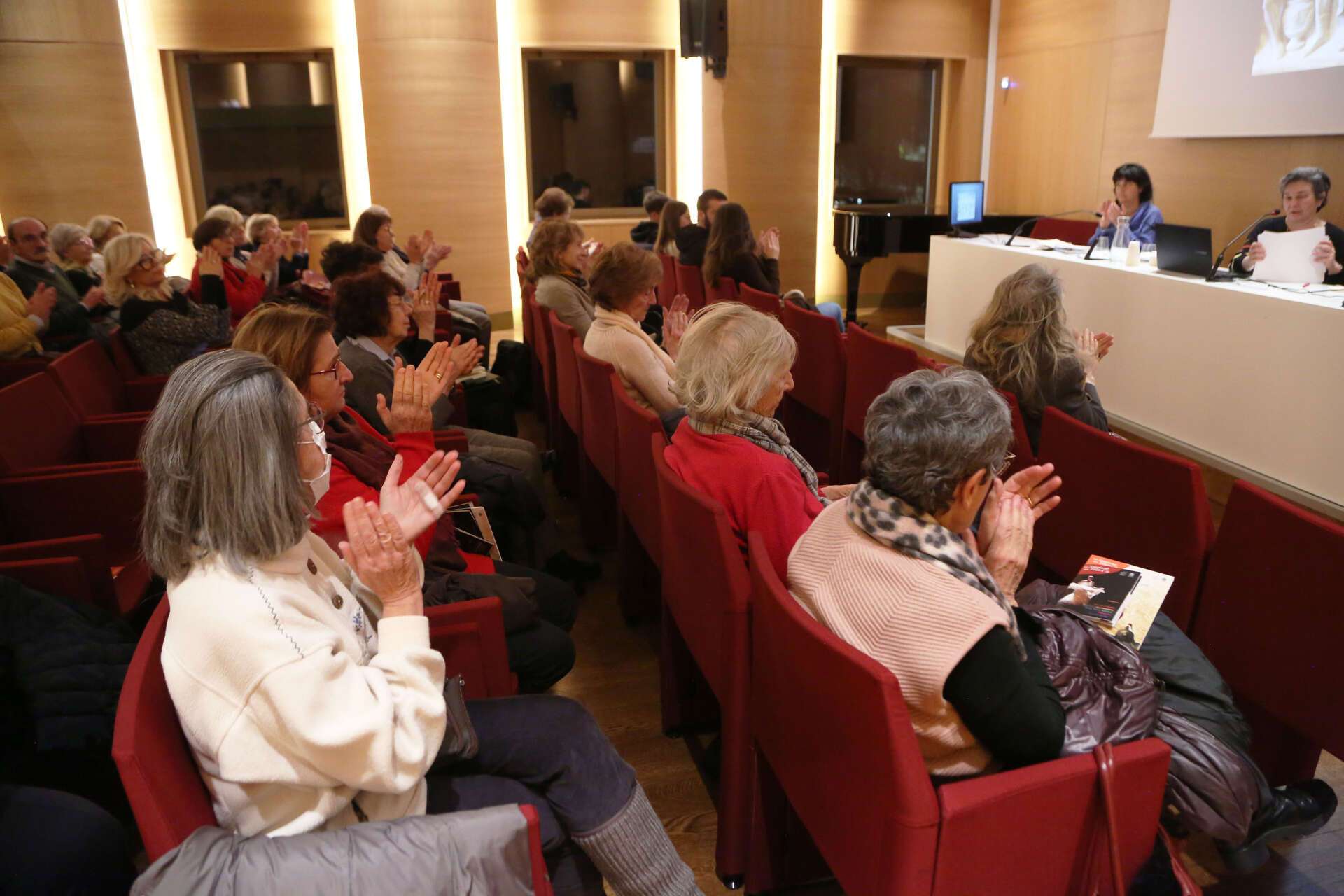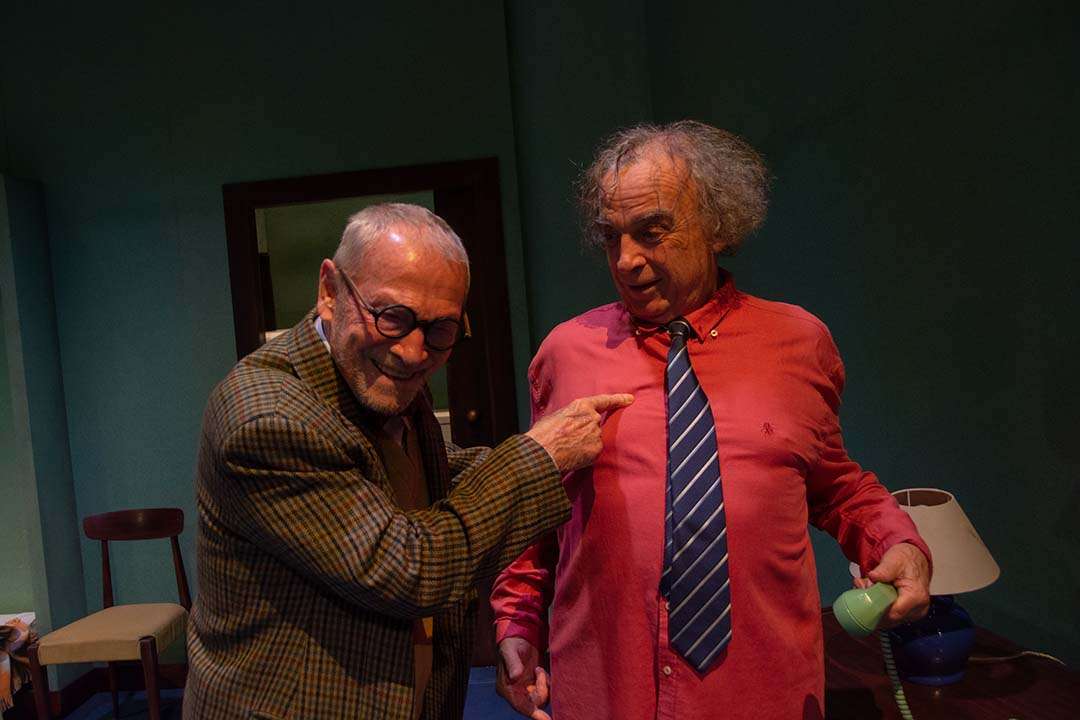Culture in dictatorial regimes: between propaganda and free art
Sala della Musica "M. Tremaglia" - Teatro DonizettiProject around the play King Lear died in Moscow Dictatorships often use different artistic languages (Cinema, Visual Art and Music) in their subjugation of populations, instrumentalizing them for their own propaganda. The play King Lear is Dead in Moscow shows how dictatorial regimes, in this case Stalin's, fear cultural freedom, which is why the protagonists of Moscow's Jewish theater were killed, ending an experience recognized throughout Europe. In the meetings, curated by experts in the individual fields, a reflection on artistic languages during dictatorships will be proposed with the aim of offering historical knowledge, but also of giving tools for decoding and reading about languages and the messages they can convey. Project realized in collaboration with ISREC - Istituto Bergamasco per la Storia della Resistenza e Dell'Età Contemporanea. Wednesday, December 4, 2024, 6 p.m. Sala della Musica "M. Tremaglia" - Donizetti Theater Art in the service of the regime. The regime in the service of art Continuity and Discontinuity of Cinema between Fascist Propaganda and the Early Post-War Period curated by Isrec – speakers Luciana Bramati (Isrec) and Giorgio Giovanetti (Ferruccio Parri National Institute). During the meeting, we will analyze how cinema, from being the main tool for building consensus for the regime, becomes a vehicle for constructing the memory of the struggle for freedom. The cases of some directors will help to develop the theme. Book your seat here Wednesday, Dec. 11, 2024, 6 p.m. Music Room "M. Tremaglia" - Donizetti Theater On the Notes of a Song The cases of the Song of the Deportees, Frida Misul's Sad Songs and Whistles the Wind by Isrec - speakers Elisabetta Ruffini and Angelo Bendotti (Isrec) Inside the violence of a lager, facing the fascist violence that hunts the partisans in the mountains, singing together becomes a moment to become aware of the experience one is living by finding the horizon to think about tomorrow. The speakers will present some cases of songs that became an expression of the collective and exceptional dimension of the camp and the partisan struggle. Book your seat here Wednesday, Dec. 18, 2024, 6 p.m. Sala della Musica "M. Tremaglia" - Donizetti Theater Art and Regime The Power of Aesthetics curated by Maria Grazia Recanati (Politecnico delle Arti di Bergamo - Accademia Carrara di Belle Arti) Art has always had relations with power. In the sense of compromise, dissent, collaboration. The 20th century has recorded two historically significant episodes in particular: the two totalitarian regimes of Nazi Germany and the communist Soviet Union. What were the attitudes of artists toward these regimes as they occurred? How did the two regimes react to the new artistic research that the historical avant-gardes were presenting? Through some emblematic cases, we will address the oh-so-sensitive topic of the relationship between art and the regime, which is intended to condition human consciousness in an overall and total way. Book your seat here All meetings are free admission by reservation on EventBrite (reservations open beginning November 18, 2024)
I ragazzi irresistibili
Teatro DonizettiThe two main characters in the play by Neil Simon, rightly judged to be one of the greatest American writers of the last fifty years, are two elderly variety actors who have worked as a couple all their lives, creating a duo that became famous as "The Irresistible Boys", and who, after separating due to irreconcilable misunderstandings, are called upon to reunite, eleven years later, on the occasion of a television program that wants them together, for one night only, to celebrate the history of the glorious American variety show. Onstage we see the two old actors with their different personalities trying to mend that rift that separated them for so many years in an attempt to revive a comic number that made them famous. Old misunderstandings reappear more entrenched and this difficult alchemy is the pretext for a play of brilliant comedy and deep melancholy. Certain exchanges of jokes and hilarious situations are a source not only of comedy but also of a look of profound tenderness for that world of the theater which, when it sees its protagonists set off on the avenue of decline, shows all its human fragility. Umberto Orsini and Franco Branciaroli come together again to revive this text, which in recent years has become a classic, in an attempt to capture everything that makes it closer to the theater of a Beckett (Finale di Partita) or even a Chekhov (Il Canto del Cigno) rather than a work of pure entertainment. In this homage to the world of actors, to their small and delightful foibles and tragic miseries, they are joined by the direction of Massimo Popolizio, who finds in the two protagonists those companions on the road with whom he has shared so many of the most intense and significant experiences of theater in recent years. Inspired by the lives of a famous pair of vaudeville performers, Joe Smith and Charles Dale, Neil Simon's The Sunshine Boys debuted on Broadway in 1972 under the direction of Alan Arkin. Numerous and highly successful theatrical productions were staged worldwide in the following decades, and, with the author's screenplay, an award-winning 1975 film version directed by Herbert Ross, starring Walter Matthau and George Burns. The 1995 adaptation for the U.S. small screen was entrusted to two A-list stars, Woody Allen and Peter Falk. Playbill by Neil Simon translation Masolino D'Amico directed Massimo Popolizio with Umberto Orsini, Franco Branciaroli, Flavio Francucci, Chiara Stoppa, Eros Pascale, Emanuela Saccardi scenes Maurizio Balò costumes Gianluca Sbicca lights Carlo Pediani sound Alessandro Saviozzi production Teatro de Gli Incamminati, Compagnia Orsini, Teatro Biondo Palermo in collaboration with CTB Centro Teatrale Bresciano and with AMAT Associazione Marchigiana Attività Teatrali and Comune di Fabriano Duration 2 hours including intermission


